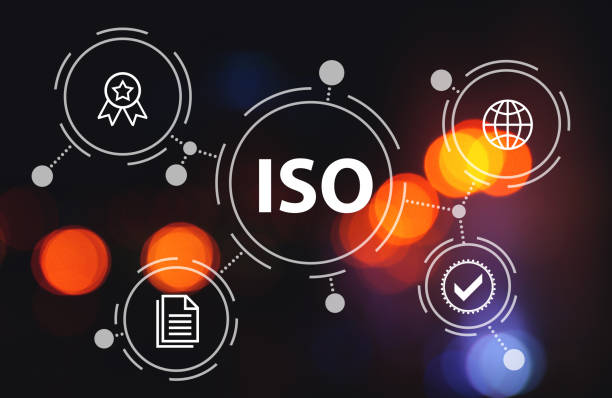What is SEO and why is it important for your business?

#SEO (Search Engine Optimization) is the process of improving a website’s ranking in search engine results such as Google, Bing, and Yahoo.
The main goal of SEO is to increase organic (non-paid) traffic to the website.
When users type a phrase into a search engine, the search engine displays results based on the most relevant and authoritative web pages.
A website that ranks higher in search results is more likely to be seen by users and receive more traffic.
The importance of SEO for businesses is that it helps them to:
- Increase online visibility.: By improving your ranking in search results, your website becomes more visible.
- Attract targeted traffic: SEO helps you attract users who are looking for your products or services.
- Increase brand credibility: Websites that rank higher are generally considered more credible and trustworthy.
- Reduce marketing costs: Compared to paid advertising, SEO can be a cost-effective way to attract traffic.
- Improve user experience: SEO involves optimizing your website to improve the user experience, which can lead to increased conversion rates.
In today’s digital world, SEO is an essential tool for any business that wants to succeed in the online space.
By investing in SEO, you can significantly increase your online visibility, attract targeted traffic, and ultimately, increase your sales.
Don’t have a company website yet and are missing out on online opportunities? With a professional company website design by Rasaweb,
✅ Double the credibility of your business
✅ Attract new customers
⚡ Free consultation for your company website!
Keyword Research: Finding the phrases your customers are searching for

Keyword research is a fundamental step in any SEO strategy.
The goal of keyword research is to identify the phrases and words that your potential customers use when searching for your products or services in search engines.
By understanding these phrases, you can optimize your website content to rank for these keywords and attract targeted traffic.
There are various tools available for keyword research, including Google Keyword Planner, Ahrefs, and SEMrush.
These tools can help you find search volume, competition, and related keywords.
When conducting keyword research, it is important to keep the following in mind:
- Relevance: The keywords you choose should be relevant to your products or services.
- Search Volume: Keywords with high search volume can drive more traffic to your website.
- Competition: Keywords with high competition can be more difficult to rank for.
- Search Intent: What is the user’s intention when searching for a keyword? Are they looking for information, or are they intending to buy?
Once you have identified your target keywords, you can use them in your website content, including page titles, meta descriptions, headings, and body text.
However, it is important to avoid overusing keywords (keyword stuffing), as this can lead to your website being penalized by search engines.
Instead, focus on creating high-quality, relevant content that naturally includes your target keywords.
Proper keyword research lays the foundation for a successful SEO strategy.
On-Page SEO: Optimizing Website Content and Structure

On-Page SEO involves optimizing various elements of your website to improve its ranking in search results.
These elements include:
- Title Tags: Page titles should be descriptive, engaging, and contain target keywords.
- Meta Descriptions: Meta descriptions should provide a summary of the page’s content and encourage users to click.
- Headings: Headings should create a clear structure for the page’s content and contain target keywords.
- Content: The page content should be high-quality, relevant, unique, and valuable.
- Images: Images should be optimized, have alt text, and a descriptive file name.
- Internal Links: Internal links help search engines understand your website’s structure and identify important pages.
- URLs: URLs should be short, descriptive, and contain target keywords.
By optimizing these elements, you can help search engines better understand your website and improve its ranking in search results.
Here is an HTML table with CSS styling that you can use to show a comparison between different On-Page SEO strategies:
| On-Page SEO Element | Optimized | Not Optimized |
|---|---|---|
| Page Titles | Contains target keywords, engaging and descriptive | Generic, repetitive or lacking keywords |
| Meta Descriptions | Summary of content, engaging and persuasive | Generic, repetitive or lacking useful information |
| Content | High quality, relevant, unique and valuable | Weak, repetitive or lacking value |
This table shows an example of how to compare different On-Page SEO strategies.
By using this information, you can make more informed decisions about how to optimize your website.
Don’t forget that On-Page SEO is an ongoing process and you should optimize your website regularly to stay up-to-date with the latest changes in search engine algorithms.
Off-Page SEO: Building Domain Authority and Credibility

Off-Page SEO involves actions that are taken outside of your website to increase your domain’s credibility and authority.
These actions include:
- Link Building: Getting links from authoritative and relevant websites to your website is one of the most important ranking factors.
- Content Marketing: Creating and publishing high-quality, valuable content can help attract links and increase traffic.
- Social Media: Active presence on social media can help increase brand awareness and drive traffic to your website.
- Public Relations: News coverage in reputable media can help increase your domain’s credibility and authority.
Link building is one of the most challenging aspects of Off-Page SEO.
To get high-quality links, you should focus on creating valuable content that others will want to link to.
You can also contact relevant websites and ask them to link to your content.
Creating high-quality links is a crucial factor in SEO success.
Content marketing also plays an important role in Off-Page SEO.
Off-Page SEO requires a multi-faceted approach.
Did you know that 94% of first impressions of a company relate to its website design?
Rasaweb helps you create the best first impression by providing professional company website design services.
✅ Create a professional and reliable image of your brand
✅ Attract potential customers more easily and improve online position
⚡ Get free corporate website design consultation
User Experience (UX) and its impact on SEO

User Experience (UX) refers to the feeling that users have when interacting with your website.
A good user experience can lead to increased customer satisfaction, increased conversion rates, and improved SEO ranking.
Search engines like Google consider user experience to be an important factor in ranking.
Websites that provide a good user experience are more likely to rank higher.
Factors that affect user experience include:
- Page Loading Speed: Website pages should load quickly.
- Responsive Design: The website should display well on different devices (mobile, tablet, desktop).
- Easy Navigation: Users should be able to easily find the content they are looking for.
- Readability: Text should be readable and understandable.
- Accessibility: The website should be accessible to people with disabilities.
By improving your website’s user experience, you can increase customer satisfaction, improve conversion rates, and ultimately, improve your SEO ranking.
Optimizing user experience is a valuable investment for any online business.
Technical SEO: Optimizing Website Infrastructure

Technical SEO involves optimizing the technical aspects of your website to ensure that search engines can easily crawl, index, and rank it.
These aspects include:
- XML Sitemap: An XML sitemap is a list of all the pages on your website that helps search engines understand your website’s structure.
- robots.txt file: The robots.txt file tells search engines which pages of your website should not be crawled.
- SSL (HTTPS): Using SSL (HTTPS) increases the security of your website and shows search engines that your website is trustworthy.
- Page Loading Speed: Page loading speed is an important ranking factor.
- Responsive Design: Responsive design ensures that your website displays well on different devices.
- Structured Data: Structured data helps search engines better understand your website’s content.
By optimizing the technical aspects of your website, you can help search engines better understand your website and improve its ranking in search results.
Technical SEO is critical to overall SEO performance.
This aspect is often overlooked but is very important.
SEO Tools: Introducing the Best Tools for Analyzing and Improving SEO

SEO tools can help you analyze your website’s performance, identify opportunities for improvement, and implement your SEO strategies.
Many SEO tools are available, including:
- Google Analytics: Google Analytics is a free tool that helps you track your website traffic and understand user behavior on your website.
- Google Search Console: Google Search Console is a free tool that helps you monitor your website’s performance in Google search results.
- Ahrefs: Ahrefs is a paid tool that helps you analyze your backlinks, keywords, and competitors.
- SEMrush: SEMrush is a paid tool that helps you analyze keywords, your competitors, and perform SEO audits.
- Moz Pro: Moz Pro is a paid tool that helps you analyze keywords, backlinks, and your competitors, and perform SEO audits.
Choosing the right SEO tool depends on your needs and budget.
By using SEO tools, you can gain valuable information about your website’s performance and make informed decisions about how to improve your SEO.
| Tool | Key Features | Price |
|---|---|---|
| Google Analytics | Traffic analysis, user behavior | Free |
| Google Search Console | SEO performance monitoring, reporting | Free |
| Ahrefs | Backlink analysis, keyword research | Paid |
| SEMrush | Competitor analysis, SEO audit | Paid |
This table provides general information about commonly used SEO tools and their features.
Each business can choose one of these tools based on its needs.
Remember that SEO is an ongoing process and using these tools helps you optimize your strategies and improve your ranking in search results.
Measuring and Evaluating SEO Results

Measuring and evaluating SEO results is essential to understand whether your strategies are working or not.
Key metrics to track include:
- Organic Traffic: The amount of traffic that comes to your website from search engines.
- Keyword Ranking: Your website’s ranking for your target keywords.
- Conversion Rate: The percentage of website visitors who perform a desired action, such as purchasing a product or signing up for a newsletter.
- Bounce Rate: The percentage of website visitors who leave your website after viewing only one page.
- Time on Page: The amount of time visitors spend on each page of your website.
By tracking these metrics, you can measure your SEO performance and identify areas that need improvement.
Remember, SEO is an ongoing process and you should regularly adjust your strategies based on your results.
Analyzing and evaluating SEO results is the key to success.
Are you lagging behind in competition with large online stores?
Rasaweb will bring your business online and increase your market share by designing a professional online store!
✅ Increase brand credibility and customer trust
✅ Easy shopping experience leads to more sales
⚡ Take action now to get a free website design consultation!
Common SEO Mistakes and How to Avoid Them

In SEO, like any other field, there are mistakes that can undermine your efforts.
Some common SEO mistakes include:
- Keyword Stuffing: Overusing keywords in your website content can lead to your website being penalized by search engines.
- Duplicate Content: Publishing duplicate content on your website can harm your rankings.
- Ignoring Mobile SEO: Today, many users access the Internet through mobile devices.
Ignoring mobile SEO can hurt your rankings and traffic. - Buying Links: Buying links from other websites can lead to your website being penalized by search engines.
- Ignoring User Experience: Search engines consider user experience to be an important ranking factor.
Ignoring user experience can hurt your rankings.
By avoiding these common mistakes, you can increase your chances of success in SEO.
Awareness of these common mistakes and avoiding them will help you improve your SEO strategy.
SEO requires knowledge and precision.
The Future of SEO: Upcoming Trends and Changes

The world of SEO is constantly changing.
To succeed in SEO, it is important to be aware of the latest trends and changes.
Some key trends in SEO include:
- Artificial Intelligence (AI): Artificial intelligence is changing how search engines work.
- Voice Search: Voice search is becoming increasingly popular.
- Video Content: Video content is becoming increasingly popular.
- Mobile Optimization: Mobile optimization is more important than ever.
- User Experience: User experience remains an important ranking factor.
By being aware of these trends, you can prepare your SEO strategies for the future.
The world of SEO is constantly evolving, so you must always be prepared to learn and adapt.
The future of SEO is tied to artificial intelligence and algorithmic changes.
Frequently Asked Questions
| Question | Answer |
|---|---|
| What is SEO? | SEO, or search engine optimization, is a process to increase the quality and quantity of website traffic by improving the site’s ranking in natural (organic) search engine results like Google. |
| What are the main types of SEO? | SEO is divided into three main categories: On-Page SEO, Off-Page SEO, and Technical SEO. |
| What does On-Page SEO include? | On-Page SEO includes optimizing elements within the website, such as keywords, page title (Title Tag), meta descriptions (Meta Description), content, URL structure, images, and internal links. |
| What is Off-Page SEO? | Off-Page SEO refers to activities outside of the website that help improve its ranking, such as Backlink Building, social media marketing, and Brand Mentions. |
| What is Technical SEO? | Technical SEO optimizes the technical aspects of the website to help search engines crawl and index it better. This includes site speed, mobile friendliness, site structure, sitemaps, and Robots.txt file. |
| What role do Keywords play in SEO? | Keywords are phrases that users enter in search engines. The correct and targeted use of related keywords in content and site elements helps search engines understand the topic of your page and display it in related searches. |
| What is a Backlink and why is it important? | A backlink, or inbound link, is a link from one website to another. Backlinks act as a “vote of confidence” from other sites for search engines and play an important role in the site’s credibility and increased ranking, especially if they are from reputable sites. |
| What effect does quality content have on SEO? | High-quality, relevant, comprehensive, and unique content not only attracts and retains users, but also shows search engines that your page is valuable. This helps improve ranking, reduce Bounce Rate, and increase the amount of time the user spends on the site. |
| Why is site loading speed important for SEO? | Site loading speed is an important ranking factor for Google. Faster sites provide a better user experience, have lower bounce rates, and are preferred by search engines. |
| Is SEO a one-time process? | No, SEO is a continuous and long-term process. Search engine algorithms are constantly changing, competition is increasing, and site content also needs to be updated. Therefore, SEO requires constant monitoring, analysis, and optimization. |
and other advertising agency services Rasa Web in the field of advertising
Intelligent Marketing Automation: Professional optimization to increase sales using user experience customization.
Intelligent Brand Identity: A quick and efficient solution to attract customers with a focus on custom programming.
Intelligent Reportage: Professional optimization to analyze customer behavior using precise audience targeting.
Intelligent Brand Identity: Professional optimization to improve SEO ranking using a content-driven SEO strategy.
Intelligent Direct Marketing: A new service to increase digital branding by optimizing key pages.
And more than a hundred other services in the field of Internet advertising, advertising consulting and organizational solutions
Internet Advertising | Advertising Strategy | Reportage Ads
Resources
SEO Tutorial from Moz
,The Comprehensive SEO Guide in Search Engine Land
,Semrush SEO Blog
,Ahrefs SEO Blog
? Are you ready for your business to grow and shine in the digital world? Rasaweb Afarin Digital Marketing Agency paves the way for your success by providing comprehensive and professional services, including custom website design, search engine optimization (SEO), and content marketing strategies. Build a bright future for your brand with us and take a big step towards progress.
📍 Tehran, Mirdamad Street, next to the Central Bank, South Kazerun Alley, Ramin Alley No. 6




